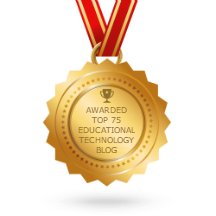Topics of interest include, but are not limited to, the following aspects:
- Topics could include a research study that has direct implications for practice. For instance, “Researcher A” completed a study on using ChatGPT with 4th grade students. They want to briefly translate the findings. More importantly, they want to specifically spend time highlighting how teachers could get their students to safely and effectively use ChatGPT.
- Topics could also include a collection of studies. For instance, “Researcher B” has spent the last five years exploring empirical research on computational thinking. They do not want to report on a specific study, but rather broadly discuss overall findings from their collection of studies. They would then use their corpus of research to create an observable list of practical implications for changing practice as it relates to computational thinking.
- Topics do not have to be one sole article or a corpus of work from one researcher. “Researcher C” for instance, is interested in middle school math tools. They might do a short literature review and then translate that to broad research findings and resulting practical implications. “Researcher C” in this case may be drawing on their own research, the research of others, or a combination of both.
- Topics can be technological, pedagogical, or content-based, but technology must play a role in the delivery. For instance, “Researcher D” could decide between drones (technological), tools to support accessibility and engagement in online learning (pedagogical), or mathematics education through 360 video (content).
- Cutting-edge topics that teachers are currently seeing and responding to are particularly welcome(e.g., AI, machine learning, extended reality, data analytics, personalized learning and instruction, the Internet of Things, cybersecurity, gamification, biometrics, blockchain).
|
|










 12 Unique Blogs Are Written By Professors
12 Unique Blogs Are Written By Professors
Leave a comment